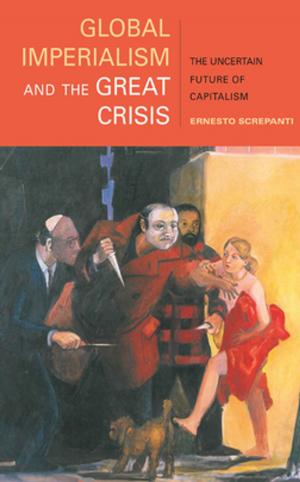| Author: | Sheila Rowbotham | ISBN: | 9781583675564 |
| Publisher: | Monthly Review Press | Publication: | September 22, 2015 |
| Imprint: | Monthly Review Press | Language: | English |
| Author: | Sheila Rowbotham |
| ISBN: | 9781583675564 |
| Publisher: | Monthly Review Press |
| Publication: | September 22, 2015 |
| Imprint: | Monthly Review Press |
| Language: | English |
In early 1917, as Britain was bogged down in a war it feared would never end, Alice Wheeldon, her two daughters, and her son were brought to trial and imprisoned for plotting the assassination of Prime Minister Lloyd George, who they believed had betrayed the suffrage movement. In this highly evocative and haunting play, British historian and feminist Sheila Rowbotham illuminates the lives and struggles of those who opposed the war. The Wheeldons’ controversial trial became something of a cause célèbre—a show trial at the height of the First World War—based on fabricated evidence from a criminally insane fantasist, “Alex Gordon,” who was working for an undercover intelligence agency. It was a travesty of justice. Friends of Alice Wheeldon is combined here with Rowbotham’s extended essay, “Rebel Networks in the First World War,” that gives a historical overview of the political and social forces that converged upon the Wheeldon family and friends.
First published nearly thirty years ago, this new edition points readers to subsequent research into the case and the ongoing campaign to clear Alice Wheeldon’s name. It offers a necessary corrective to the more triumphalist commemorations of the First World War.
In early 1917, as Britain was bogged down in a war it feared would never end, Alice Wheeldon, her two daughters, and her son were brought to trial and imprisoned for plotting the assassination of Prime Minister Lloyd George, who they believed had betrayed the suffrage movement. In this highly evocative and haunting play, British historian and feminist Sheila Rowbotham illuminates the lives and struggles of those who opposed the war. The Wheeldons’ controversial trial became something of a cause célèbre—a show trial at the height of the First World War—based on fabricated evidence from a criminally insane fantasist, “Alex Gordon,” who was working for an undercover intelligence agency. It was a travesty of justice. Friends of Alice Wheeldon is combined here with Rowbotham’s extended essay, “Rebel Networks in the First World War,” that gives a historical overview of the political and social forces that converged upon the Wheeldon family and friends.
First published nearly thirty years ago, this new edition points readers to subsequent research into the case and the ongoing campaign to clear Alice Wheeldon’s name. It offers a necessary corrective to the more triumphalist commemorations of the First World War.















